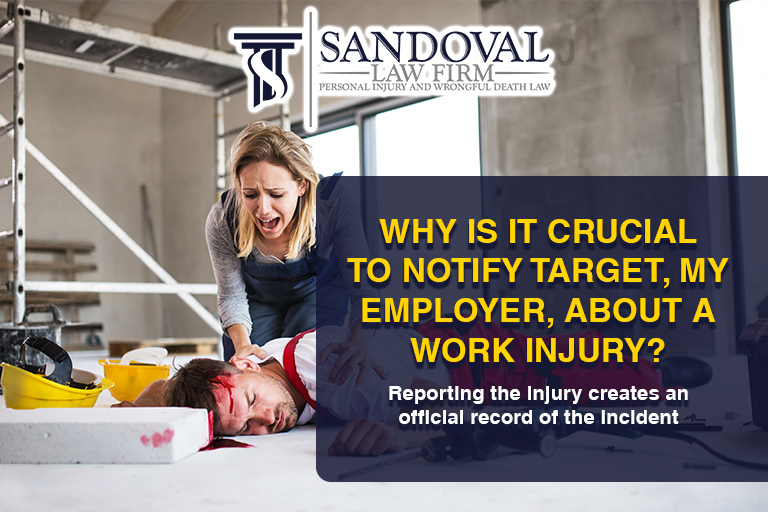Recognizing the Significance of Reporting Workplace Injuries to Target
Reporting a work injury to your employer Target is critically important for several reasons:
Timeliness of Medical Treatment:
Promptly reporting your injury allows you to receive timely medical treatment. Delaying reporting could mean delaying necessary medical attention, potentially worsening your condition.
Legal Requirement:
Many states, including Texas, have legal requirements that mandate the reporting of workplace injuries within a specific timeframe. Failing to report within these deadlines may jeopardize your ability to seek workers’ compensation benefits.
Establishing a Record:
Reporting the injury creates an official record of the incident. This record can be crucial in establishing that your injury occurred in the workplace and during the course of your employment. Without a record, it may be challenging to prove your case later.
Protection of Rights:
By reporting the injury promptly, you protect your legal rights. Workers’ compensation laws are in place to ensure that injured employees receive necessary benefits, such as medical coverage and wage replacement. Reporting the injury is the first step in accessing these benefits.
Preventing Retaliation:
In many jurisdictions, it is illegal for employers to retaliate against employees who report workplace injuries. Reporting the injury helps safeguard you from potential adverse actions by Target.
Preventing Future Incidents:
Reporting injuries also allows your employer to investigate the incident and take corrective measures to prevent similar accidents from happening in the future. This can improve workplace safety for you and your coworkers.
Preserving Evidence:
Reporting the injury promptly helps preserve evidence related to the incident, which can be critical if there is a dispute or legal action down the road.
Reporting a work injury to Target is essential for your own well-being, ensuring legal compliance, protecting your rights, and creating a record of the incident that can be invaluable if you need to pursue workers’ compensation benefits or legal action. It’s a crucial step in the process of addressing workplace injuries responsibly and fairly.














